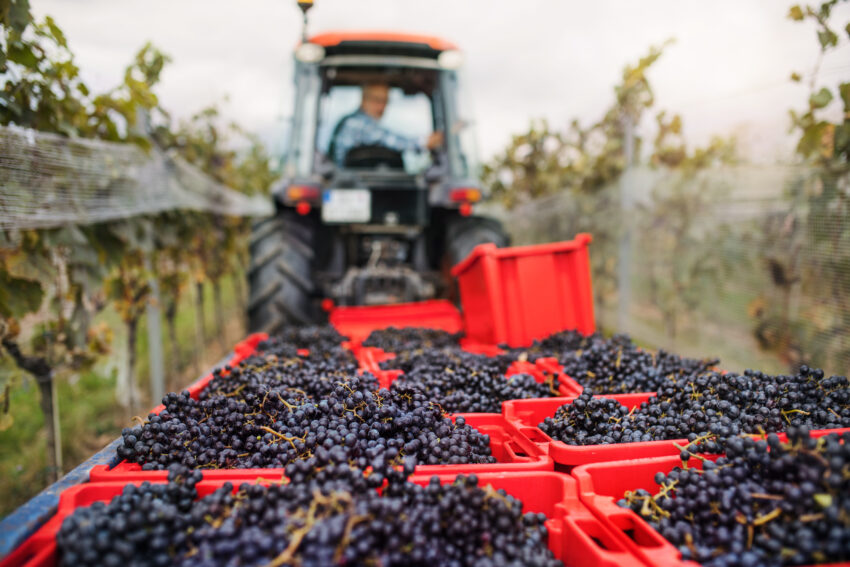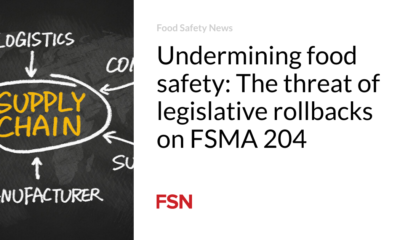Business
A threat to sustainability and democracy

In a rush to address the grievances of protesting farmers and court rural votes ahead of the upcoming EU elections in June, the European Union has hastily pursued the dilution of environmental safeguards within its agricultural subsidy system.
This accelerated maneuver, shrouded in secrecy and without a comprehensive assessment, not only deviates from the EU’s typical legislative process but also raises deep concerns about the future of sustainable agriculture and democratic governance within the bloc.
The proposed changes, which are strongly endorsed by the European Commission, aim to reduce the regulatory burden imposed on farmers by scaling back environmental obligations linked to public funding. These obligations, commonly referred to as “conditionality”, are a cornerstone of the EU’s efforts to promote environmentally sustainable agricultural practices. However, the Commission’s decision-making process, carried out without adequate consultation or impact assessment, raises serious concerns about the transparency, accountability and integrity of EU governance.
Running before one can walk
Under the pretext of meeting the urgent demands of protesting farmers, the Commission has accelerated the formulation and implementation of these amendments, bypassing the usual channels of public consultation and expert opinion. This accelerated approach, while ostensibly aimed at appeasing dissatisfied stakeholders, sets a dangerous precedent of prioritizing short-term political opportunism over long-term environmental sustainability and democratic accountability.
Critics argue that the hasty rollback of green farming rules not only undermines the EU’s commitment to environmental stewardship, but also more broadly erodes the democratic foundations on which the Union is built. By setting aside broader public interests in favor of specific sectoral interests, the Commission risks endangering the legitimacy and credibility of the EU institutions, undermining European citizens’ confidence in the effectiveness and fairness of EU governance .
Amid the turmoil surrounding the hasty rollback of green farming rules, the EU’s flagship farm-to-fork strategy is at a crossroads. Launched with much fanfare as a transformative blueprint to revolutionize food production and consumption, the strategy now finds itself in limbo, with key initiatives blocked by bureaucratic inertia and political indecision.
The biggest losers are the consumers
At the heart of the controversy surrounding the hasty rollback of green farming rules lies the contentious issue of food labelling, epitomized by the controversial Nutri-Score system, the Front of Pack (FOP) label that color-codes and assigns a number to each food grants. letter from AE. Now that the Commission has focused on tackling obesity through labeling, it is clear that obesity is a public health crisis that requires a much more thoughtful response. The recent symposium organized by Competere.eu, with MEP Rosa D’Amato from the Greens/EFA group, sheds light on the complexity of obesity. Rose D’Amato reinforced this by saying: “Obesity is not just an issue of personal health, but a societal problem that requires our urgent attention and collective action. The numbers are rising and we need to tackle this problem urgently.”
Despite its purported goal of providing consumers with nutritional information, Nutri-Score has faced widespread criticism for its oversimplified methodology and often misleading algorithms. The one-size-fits-all approach clearly fails to capture the complexity of nutritional health. The ever-changing iterations of the algorithm only succeed in further confusing consumers; foods gain or lose numbers, often without much rhyme or reason. Furthermore, the system has been accused of punishing traditional diets, such as those rich in diets olive oil and nuts, while not taking into account regional differences in dietary preferences and cultural norms.
In recent years, Nutri-Score has faced significant opposition and skepticism from several European countries regarding its effectiveness and fairness as a standardized labeling system. While France initially embraced Nutri-Score – largely because its founder was French – its adoption was met with resistance from neighboring countries such as Italy and Germany. Italy in particular firmly opposed Nutri-Score, advocating a more nuanced approach that recognizes regional dietary patterns and cultural preferences. This opposition stems from concerns that Nutri-Score’s oversimplified methodology inaccurately reflects the nutritional value of foods, especially those integral to traditional Mediterranean diets, such as olive oil and nuts. Germany also expressed concern about the potential adverse impact on domestic food producers and the wider food industry, and stressed the need for a balanced approach to food labeling that takes into account diverse food traditions and economic considerations.
Romania took a decisive stand against Nutri-Score by banning its use within its borders due to concerns over its inability to accurately inform consumers about the nutritional value of foods. This move underlines broader dissatisfaction among European countries with the suitability of Nutri-Score as a comprehensive and fair labeling system. In addition, products with prestigious designations such as Appellation d’Origine Protégée (AOP) and Appellation d’Origine Contrôlée (AOC) are often treated unfairly under the Nutri-Score system, despite meeting strict quality and production standards. This disparity further highlights the inherent limitations and biases of Nutri-Score, which fails to adequately recognize the nutritional nuances inherent in such specialty products.
As the EU grapples with the challenges posed by the hasty rollback of green farming rules and the controversial issue of food labelling, the need for informed and inclusive policymaking has never been more urgent. Faced with increasing pressure from different stakeholders and competing interests, the EU must reaffirm its commitment to democratic governance, environmental sustainability and public health. By engaging in transparent dialogue and taking into account the diverse needs and perspectives of European citizens, the EU can chart a course towards a more resilient, fair and sustainable food system for all. Now that the European elections are just around the corner, this is more important than ever before.













